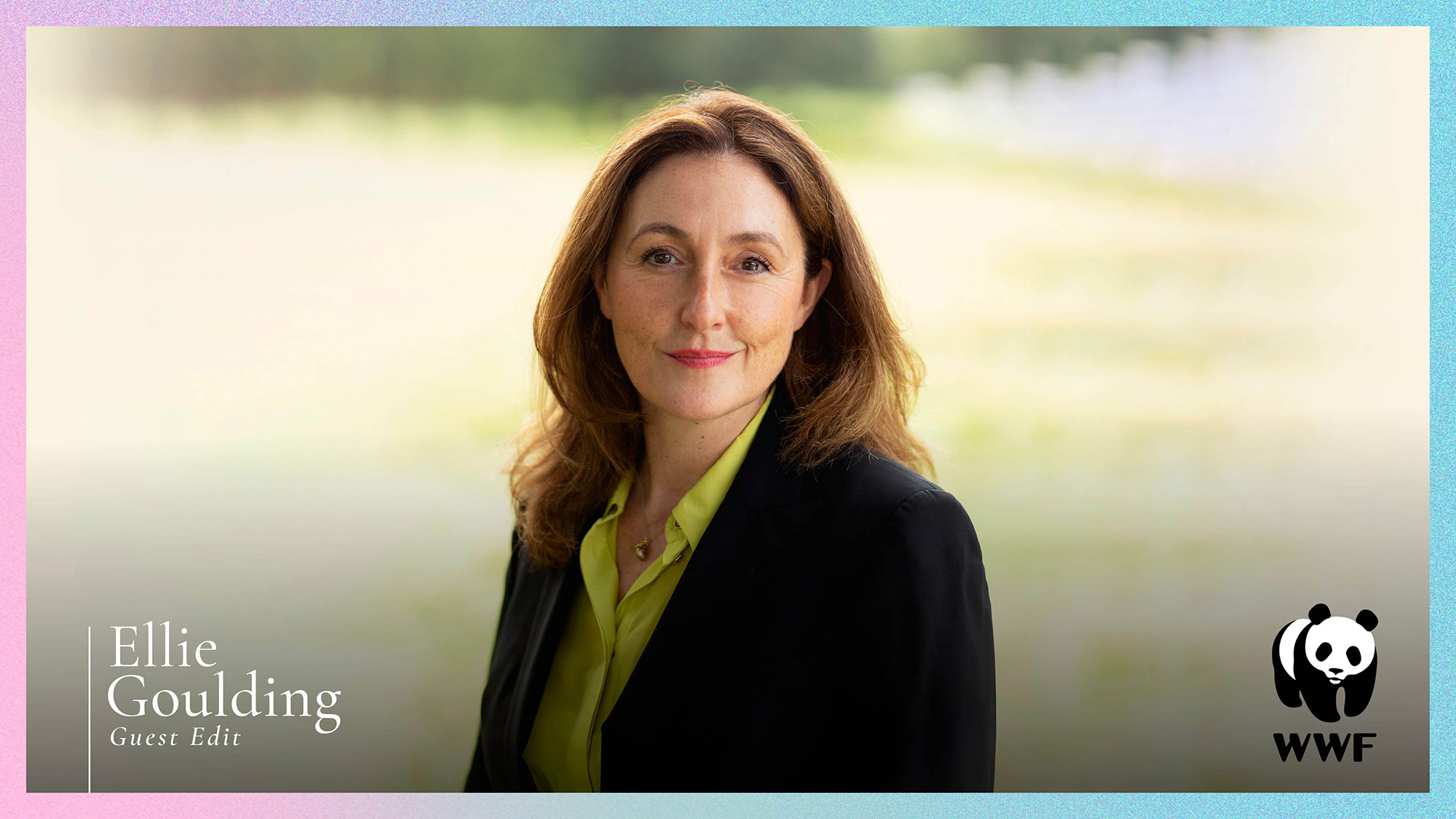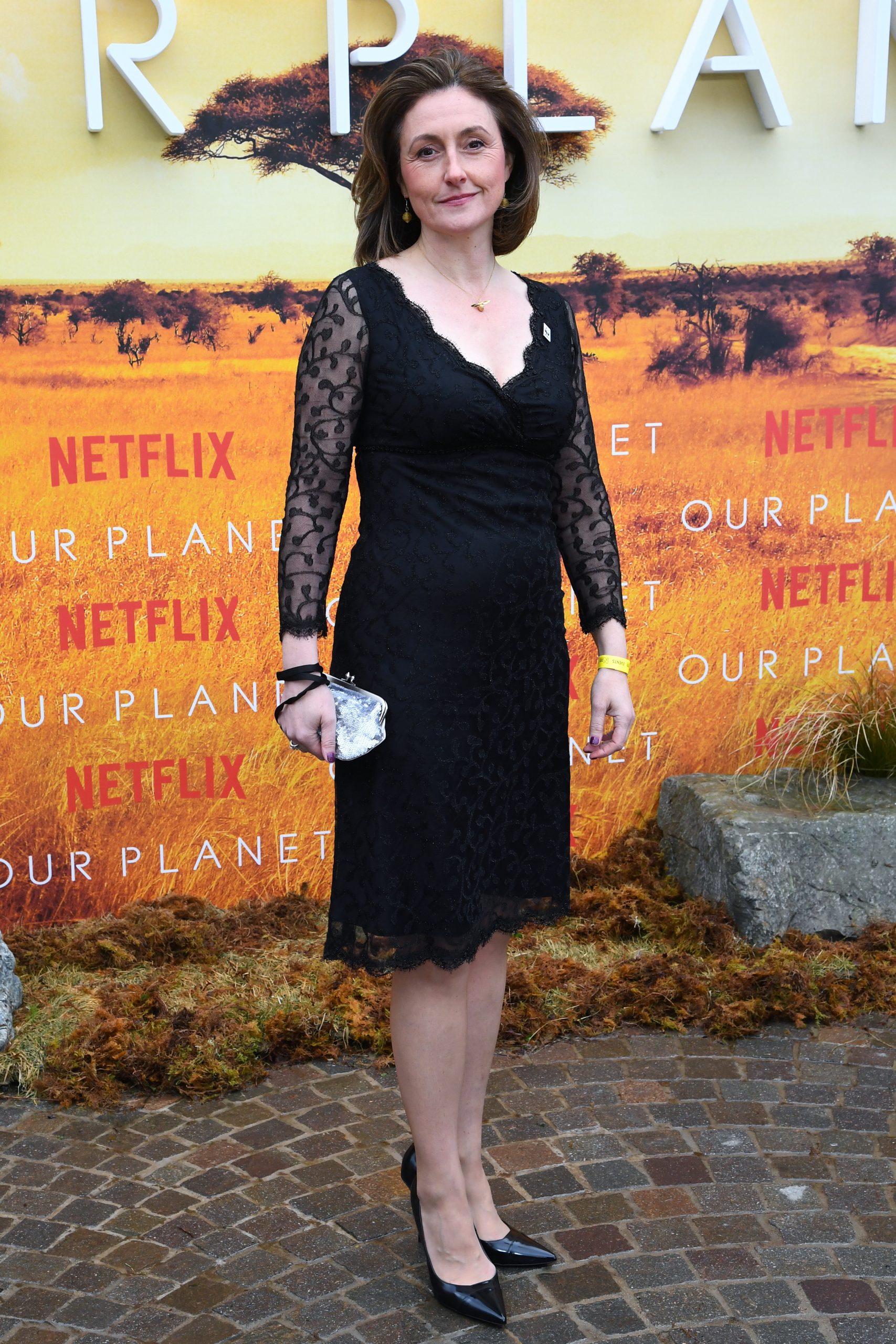Tanya Steele: "You’ve got to be able to face who you are and what you stand for"
As part of Ellie Goulding's guest edit this Earth Month, she has chosen to profile WWF CEO Tanya Steele in our Women Who Win Interview series...


Celebrity news, beauty, fashion advice, and fascinating features, delivered straight to your inbox!
You are now subscribed
Your newsletter sign-up was successful
As part of Ellie Goulding's guest edit this Earth Month, she has chosen to profile WWF CEO Tanya Steele in our Women Who Win Interview series...
Tanya Steele is the first female CEO of the World Wildlife Fund for Nature (WWF) and a name that everyone should know.
It's no surprise therefore that she was Ellie Goulding's first choice to profile as part of her Guest Edit with Marie Claire UK this Earth Month.
"As CEO, I lead the UK office of WWF, the world’s largest independent conservation organisation, at a critical time for our planet," Tanya explained to Marie Claire UK. "It’s my job to drive our vital mission to tackle the drastic decline in wildlife and the places it lives all across the globe. Our natural world is under threat like never before – and that includes here at home in the UK, which ranks in the bottom 10% on the planet in terms of the richness of our nature - we’ve lost more wildlife and wild places than most other countries around the world."
She continued: "To make a difference we need to work to save and regenerate nature and campaign on the greatest threats – climate change, deforestation, water and ocean pollution and creating a food system that doesn’t destroy precious natural environments. I joined WWF because I could see the increasingly visible impacts of climate change on the planet and people and I wanted to be part of the solution."

"I'm always a fan of a female CEO in any situation and Tanya is really inspirational to me," Ellie explained as she chose to profile Tanya as a Women Who Win. "She just gets things done. She will go into businesses and inspire them to make change and to be more sustainable. She will tell them how it is, get them to make pledges and she will not rest until they have made those changes. She brings people together and gets them to make commitments and that's what we need."
Our Women Who Win interview series celebrates female trailblazers who are shaping the future for us all, and Tanya with her steadfast determination is that in a nutshell.
Celebrity news, beauty, fashion advice, and fascinating features, delivered straight to your inbox!
As part of Ellie Goulding's Guest Edit, we sat down with Tanya to talk WWF, her business superpowers and what we can all do to make a difference.
Take me back to you joining WWF...
I received a call asking me to join WWF while I was in Zimbabwe during a drought – I was standing there with a community that was trying to dig for groundwater and there was none there. As a result of that drought, caused by rising global temperatures, there was a terrible food crisis as crops couldn’t grow. That was a lightbulb moment – seeing the suffering caused by climate change. After I returned home, I began to look more carefully into the science of climate change – and was pretty shocked by the scale of the threat facing us and our world. I decided to join WWF to help address the root cause of the problem.
What are your main priorities?
Ultimately, we depend on nature for every mouthful of food we eat, every drop of water we drink and every breath of air we take. Just one example of this is our forests, which help regulate the climate by taking huge amounts of carbon dioxide from the atmosphere – we cannot survive without them. We need to make big and urgent changes in the areas that are driving climate change and nature loss - particularly the food and finance sectors. The food sector, for example, is responsible for 60% of global nature loss (that’s through things like clearing natural habitats to make way for food production). Food businesses and governments must support farmers to produce food sustainably. Similarly, we need to push the finance sector to invest in areas that benefit the planet – such as renewable energy – rather than those that drive climate change – such as fossil fuels.
When were you proudest?
This job is a privilege, I’m lucky to have had a few proud moments! One was speaking in front of hundreds of people at the preview of the Netflix Our Planet series alongside eminent scientists, filmmakers and Sir David Attenborough, laying out the threats to our planet and the solutions. Afterwards Sir David leapt up and exclaimed "That was marvellous" and gave me a big hug, I remember thinking, "I can die happy now"! I’m also incredibly proud of how the WWF team has propelled our work with business, getting forward-thinking leaders to the table and committing to taking action – such as in setting ambitious climate targets.
Have you ever felt discriminated against as a female CEO?
I find it’s less direct discrimination but sometimes I’ve found as a female CEO it is harder to be heard and you often need to say things twice. I love the quote from former US Secretary of State Madeleine Albright, “It took me quite a long time to develop a voice, and now that I have it, I am not going to be silent.”
What is your superpower?
I’m told that I’ve got an endless bank of energy for the work I do. When I was at the COP26 Climate Summit in Glasgow, days could start at 5am and then go on into the early hours but I knew it was a moment in time and everything I did there had to count. The work is so important for the next generation, including my son – that’s what drives me.
What will you never compromise on?
I have an absolute commitment to ensuring that promises on tackling climate change and limiting global warming to as near to 1.5C as we can are kept. There is too much at stake – it’s a matter of survival. From sea level rise in the Maldives to loss of crops in East and West Africa, climate change can be a death sentence. In tackling climate change we must support vulnerable countries, regions and communities, leaving no-one behind. I remember on one of my first visits to Kenya with WWF, meeting a member of the Maasai community who told me that the names for the months in their calendar are based on the rains that come and that as the rains were now so unpredictable the words had become meaningless. Climate change has even impacted people’s language.
What is your mantra?
You’ve got to be able to look yourself in the mirror every day and face who you are and what you stand for. Be proud of the decisions you’ve made and how you’re living your life.
What worries you about the state of our planet?
Our 2020 Living Planet Report found that wildlife population sizes have plummeted by an average of 68% over the last 50 years and there’s a real risk of us losing forever those species we care so much about. To put this into perspective, if there was a similar decline in the human population, that would be equivalent to emptying North America, South America, Africa, Europe, China and Oceania. From puffins to Leatherback Turtles to snow leopards, we’re destroying their sources of food and their homes and global warming means we’ve lost 14% of our coral reefs since 2009.
What would you want to change for the world?
We must change our direction of travel away from increasing greenhouse gas emissions and in order that future generations can experience the richness, beauty and wonder of a recovering natural world. We must put back what we’ve taken away as we can’t tackle climate change unless we restore nature. Nature is a precious web of life that enables us to survive – as well as being awe-inspiring and wonderful in its own right. Having had the privilege of seeing many incredible landscapes and their amazing wildlife up close, including in the Amazon rainforest in South America, I know our lives are made richer by such natural beauty.
What can each of us do in our own lives to make a difference?
We can all walk a little lighter on the planet including measuring our own environmental impact and take steps to reduce it – using tools such as WWF’s MyFootprint app or carbon footprint calculator. This could include eating more plant-based meals, repairing more and buying less, and checking that our money isn’t invested in coal, oil and gas or other areas that damage the environment. We can also use our voices to call on governments and business to take action for nature and to tackle climate change.
Read Ellie Goulding's full Guest Edit @MarieClaireUK.

Jenny Proudfoot is an award-winning journalist, specialising in lifestyle, culture, entertainment, international development and politics. After working at Marie Claire UK for seven years - rising from intern to Features Editor - she is now a freelance contributor to the News and Features section.
In 2021, Jenny was named as a winner on the PPA's '30 under 30' list, and was also listed as a rising star in journalism.